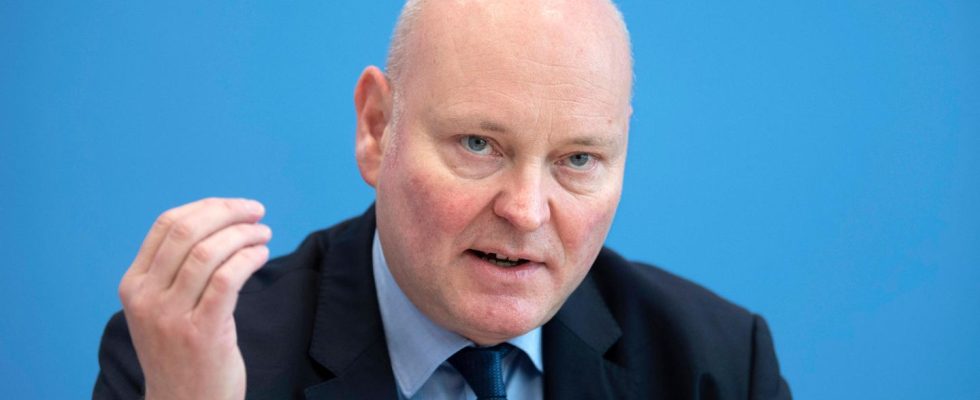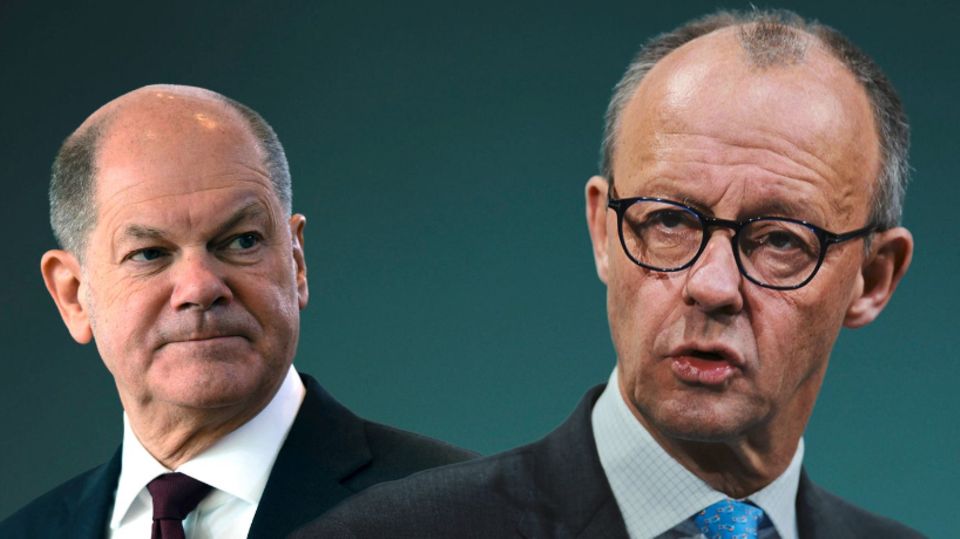In the budget crisis, demands for cuts in social spending are increasing. For the economist Achim Truger, that would be the wrong approach.
Mister Fraudster, 17 billion are missing from the 2024 budget, says Finance Minister Lindner. Where should the government best save money?
This is the wrong discussion. The money from the judgment Karlsruhe which will no longer be available in the next few years, was intended for credit-financed investments. The best way to finance the traffic light is to find a way to take out loans for it. I’m thinking of a reform of the debt brake or a kind of “special climate fund”. Similar to how there is already a special fund for the Bundeswehr, which was anchored in the Basic Law with the votes of the Union.
That would probably also be the preference of the SPD and the Greens. But this time the Union is blocking itself. And also the FDP wants the traffic light to manage the available money better.
If the government wants to save money, it should look at climate-damaging subsidies. Their abolition has already been announced in the coalition agreement. But it actually shortens the traffic lights Social spendingAs some are now demanding, this would not only lead to serious social problems, it would also be bad for the economy.
You have to explain that.
Financial policy for the coming year was already restrictive. If you make cuts in the social area, you create an additional restrictive impulse. This makes it more likely that the government will push the economy into recession. We need investments on a scale like this climate– and transformation funds and the economic stabilization fund. If these are eliminated, economic growth will fall by 0.9 percentage points.
There are numerous proposals for cuts in social spending. They have long since come not only from the Union and FDP, but also from other economists.
What we’re watching right now is a big game called “What I’ve Always Wanted to Say.” Many people are using the Karlsruhe ruling as a pretext for proposals for cuts that they have already suggested before.
Are the ideas all so wrong?
Some suggestions can be discussed. They just wouldn’t help us in the current situation with an acute hole in the budget. However, other proposals would have a massive negative impact on the poorest in society. And that shows the absurdity of the whole debate: Because the government has completely messed up by financing climate-friendly investments, poor pensioners should now pay for it?
Her colleague on the panel of economists, Veronika Grimm, has also spoken out in favor of cuts to pensions. She thinks that the pension from the age of 63 or the mother’s pension could be put up for discussion.
Anyone can make suggestions. However, I do not consider these cuts to be recommended. These ideas are half-baked quick fixes. There are valid rules for pension adjustments that should not be overridden for short-term budget restructuring. The mother’s pension also has an effect on poverty in old age. If you cut back, it would have particularly strong negative effects in the lowest income bracket. This would increase the risk of poverty rate and ultimately drive more people into basic security. That would put a burden on the state elsewhere. There is also an instrumental problem with both proposals: these pensions are paid primarily from contributions. If you delete them, you would relieve the burden on contributors, but you wouldn’t save that much in the federal budget.
Nevertheless, the largest part of social spending goes towards pensions. The federal government pays around 100 billion euros per year as a subsidy to the statutory pension insurance. Shouldn’t you be there?
You can demand that, but what are the consequences? Of course you could simply reduce the federal subsidy. But then on the other hand the contributions have to increase. I think that doesn’t help us.
Then we look at citizens’ money. The Union is bothered by its increase by 12.6 percent at the beginning of 2024.
In my view, this is populism, pure theatrical thunder. The Union itself has agreed to the mechanism that adjusts citizens’ money more quickly to inflation. Apart from that, there are strict constitutional limits to citizens’ money; it ensures the minimum subsistence level. You can’t shorten it that easily.
You couldn’t introduce basic child welfare?
It should be a key concern to limit child poverty. If you seriously want more people to receive the benefits they are actually entitled to, you should not prevent the introduction of basic child benefits. Plus, it’s not due to come until 2025, so removing it wouldn’t help at all in the 2024 budget.
In the past few weeks there has been massive criticism of the design of basic child security, not only from the municipalities, but also from the Federal Audit Office and the Employment Agency, which is supposed to implement a significant part of it.
Of course, you have to find the most efficient design possible. The question of interfaces is complex and is still being discussed. However, I think it is inappropriate to question basic child welfare as a whole because of this.
Let’s say briefly: You shouldn’t make cuts in the social sector, but a reform of the debt brake or a new special fund anchored in the Basic Law are currently politically blocked. So what is the traffic light supposed to do?
If politicians do not want or cannot take out additional loans, they have to look at the revenue side. A “climate solidarity”, similar to the current solidarity surcharge, could help finance climate projects. Of course, one could alternatively raise energy taxes or the CO2 price. That would be good from an ecological perspective, but also an economic burden. One thing is certain: we must not skimp on investments now. This will take its toll in the future.


